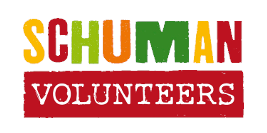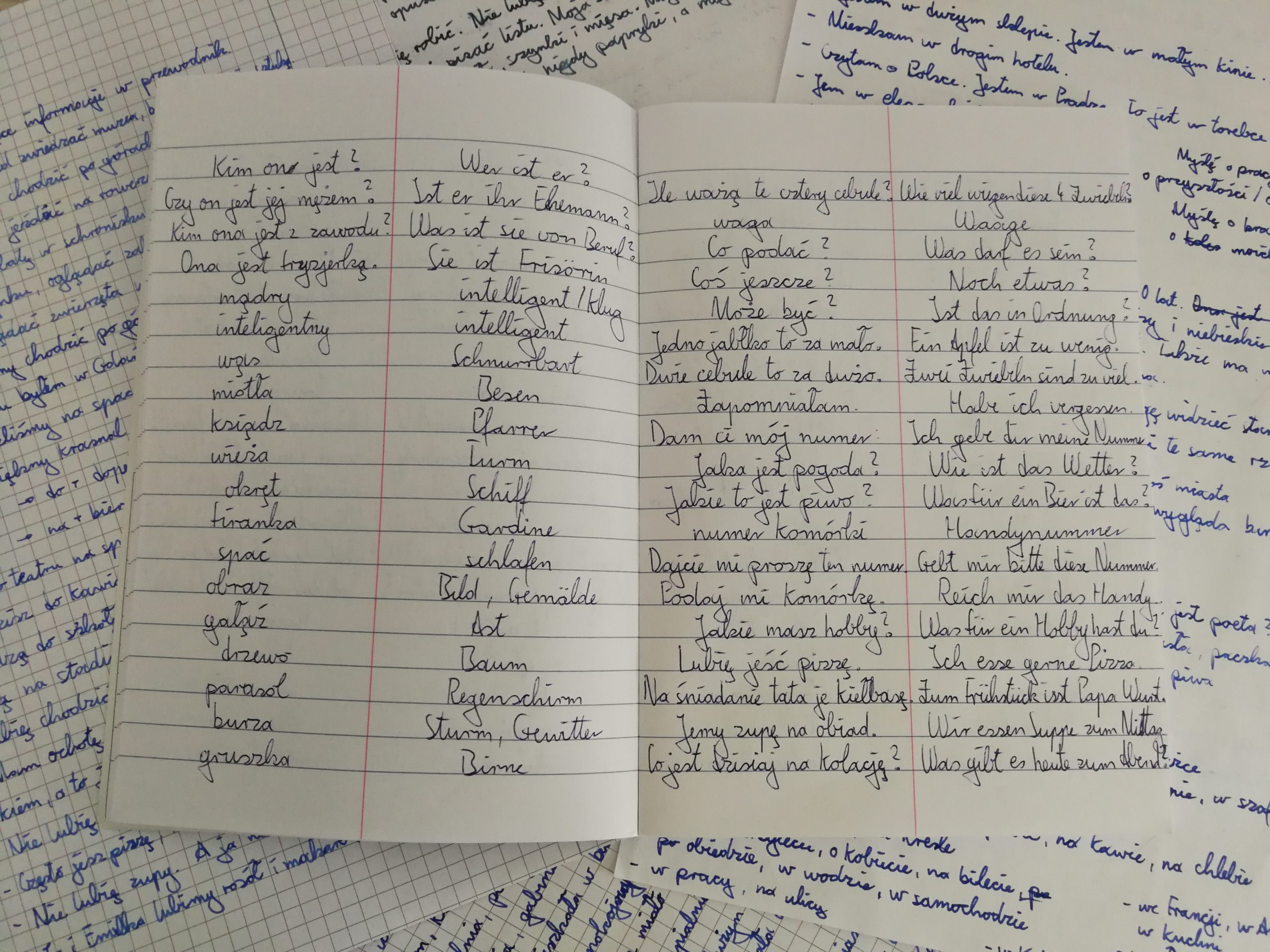I often compare the Polish language with the Hydra. If you get one thing of its unbelievably hard and devastating grammar, the next two exceptions, different declinations or just disillusioning difficulties will await you around the corner. The following words are going to describe my heroic fight against despair and headache with the Polish language. The point of these simplistic English words is to bring you to the conclusion of seeing the apprenticeship of Polish as a Kamikaze action or how one of my Polish teachers usually calls it: Armageddon.
Do not get me wrong here concerning my motivation and hope at the beginning. It was non-existent. After having watched an introduction to the Polish language and its grammar of which is basically understood nothing, I already knew that this language would give me a hard time. However, I was still in a state of mental repressing of these sentiments. I thought that once I started learning everything would be fine. It was not. But before I continue the narration of my personal struggles, you can check out the video below and look out for the comment with all the conjugated versions of to eat.
So, what did I do after this shock? First, I did nothing for the next one or two months. But then, as the date of my departure to Poland got closer and closer, I realized that I could not escape it any longer. I had to start. And I did. I bought myself a book on Polish grammar and I started learning vocab on an online platform. Because of the date of departure getting closer and closer I really started worrying how I could survive in Poland, as I did not expect the people who do not live in Warsaw or Cracow to really speak English.
In the end, on the day of departure I was able to know like the 200-300 most important Polish words and expressions. And my first contact with the Polish language was already in Germany, more concrete on the Berlin-Warsaw Express. The reason for that was that I had heavy luggage and I was in a compartment with a Polish woman and she was very kind and helped me with my luggage. I was therefore happy that I could say thank you to her in Polish, so that she could really understand it.
However, this train journey also showed me the limits of my language skills. When the train stopped in Poznan for more than one hour, there were a lot of new passengers coming on the train and they started chatting in Polish. I felt a bit awkward because of the cramped compartment and confused due to the train not moving for such a long time. As I had never really listened to a conversation in Polish before, I then realized that it is just like an endless flow of concatenated words.
In general, I would also say that this is always the first step of language learning. At the beginning, you cannot distinguish the words and then when you have learnt a bit, you are able to recognize some familiar ones, but the rest is still one mass. After some more time of studying, you recognize more and more words and you also start to see some grammatical features like the declination of these words. Then, as you start forming your own phrases, you become more familiar with the general structure of sentences and usually from this point on, the mass will transform itself from one whole, to more and more distinguishable fractures. This is also the point where I consider myself to be now as I started watching some YouTube videos and listening more to Polish songs and I understand quite a lot if it is not too fast.
So, when I eventually arrived in Warsaw, my first occasion where I really had to use Polish myself was the next morning when I went to a local bakery in the Ursynów neighborhood. There, I bought a bread roll, which I could also communicate in Polish as I knew the vocab for that. But I also wanted to try out one of the delicious pastries, so I tried to order a drożdżówka, which I failed miserably to pronounce. I have to say though, that this first encounter with the Polish language in every-day life made me motivated again, as the Poles usually are extremely excited when a foreigner tries to communicate with them in their language.
Nonetheless, there is also an aspect of the Polish culture concerning the usage of foreign languages, which appears to be quite odd in my eyes. While they help foreigners a lot to communicate in a mix of Polish and sign language, many Polish people are very frightened of using English. Of course, there are some exceptions, but normally you just hear a lot of apologies that their English would be terrible etc. which often is false as most Poles have quite a decent level of English. There is just this kind of cultural hurdle which restricts them in their eagerness to use the language skills they acquire at school or rather outside of school as language classes in Poland are often not the best to put it mildly. What really strikes me is that they are so helpful to others speaking Polish, but they do not expect the same kindness from English- or German-speaking people.
But how was the situation with Polish in the Zagłębie Dąbrowskie, the region where I did my voluntary service, after all? First, I have to say that I was quite lucky that the teachers in Wojkowice with whom I worked with are English and German teachers, so the communication at the workplace was quite easy. Also, the landlord could speak both, English and German, as well, so that the overall situation was particularly good in terms of the languages we used.
The situation outside of school though, was very much like how I expected it to be. With the people working at bakeries, supermarkets, restaurants, grocery stores and shops in general it was not possible to talk in English or German.
I also just realized that I have never asked somebody if they could speak English or German except for the very beginning. The reason for that is probably that after two or three weeks you have already bought basically everything that you need on a regular basis at least once, so that you just repeat the same phrases again and again.
However, this can also lead to some interesting situations when you encounter something which you have never seen before as it is not popular in your country and you are also not able to understand the explanation for it in the foreign language. This happened to me in the second week of my stay in Poland, when my flat mate Asha and I went to the targ in Będzin for the first time. For this, you must know that a Polish targ is a place where you can literally buy everything you could imagine, so there were a lot of things that I did not know. So, at the end when we already had everything, we needed I wanted to buy something to eat for the way home. There was a stall which sold something which looked like pastries, so I just asked them what it was hoping to understand it, but I had absolutely no idea. I then asked for the price as I knew some numbers in Polish, but I did not get which one the vendor used. Eventually, I just bought it and it cost 30 złoty, which was like twice or thrice the price I expected. When I then got it in my hands, I immediately knew that it was not a pastry because it was so damn heavy. And it smelled like smoked salmon. But still, I did not know what it was. So, I just googled something like ‘smoked Polish things’ and I found out what it was. It was something very typical for Poland. I bought Oscypek, a smoked cheese from the Tatry mountains.

After all, I must say that almost all my experiences with the Polish language were extremely positive. As I already mentioned, the Poles are generally very hospitable, and this also concerns their behavior when communicating with foreigners. It was of course hard sometimes to not know the language which you constantly hear around yourself. Nonetheless, this was also an important experience for me as I had never been in such a situation before where I was really on my own having to organize myself in a different country without sufficient language skills. I can now definitely understand how an immigrant must feel in Germany when being confronted with the German language.
In the end, learning Polish was quite enriching. I discovered a completely new culture and I met many nice people in my Polish class from all over the world. Despite the relatively small community of Polish speakers, I have never really had the impression that it was useless in any way as there has always been something which made me interested again. From watching dozens of animated movies as part of my Polish Film Class at the University of Silesia to understanding most of the disco polo songs, I really discovered a lot about which I had absolutely no idea beforehand. And eventually, I also climbed the Olympus of the Polish language by finally being able to pronounce this one name, which Polish students always wanted me to say. No pewnie! Znam Grzegorza Brzęczyszczykiewicza.

